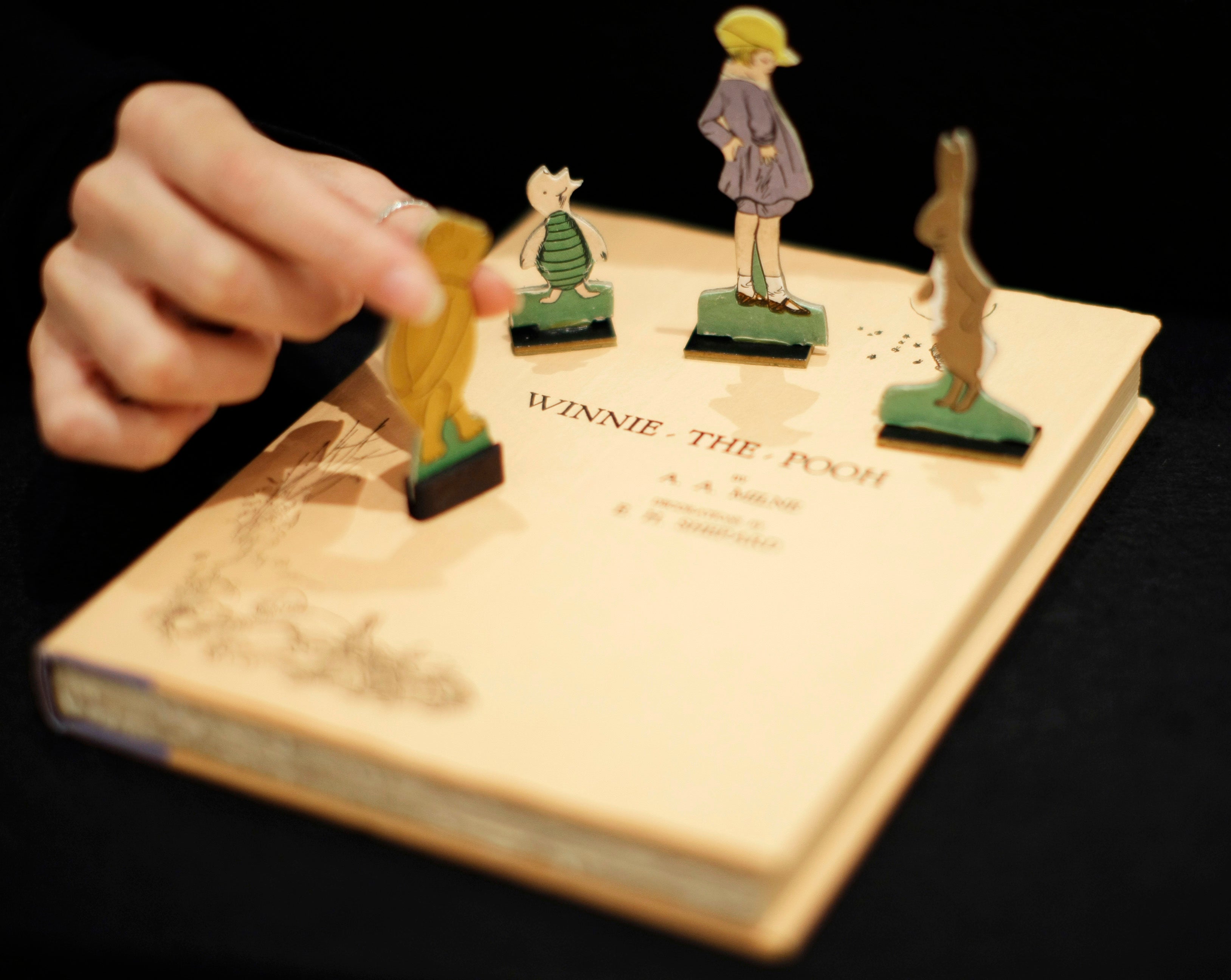'Pooh,' 'Sun Also Rises' among works going public in 2022
“Winnie the Pooh” and “The Sun Also Rises” are going public

Your support helps us to tell the story
From reproductive rights to climate change to Big Tech, The Independent is on the ground when the story is developing. Whether it's investigating the financials of Elon Musk's pro-Trump PAC or producing our latest documentary, 'The A Word', which shines a light on the American women fighting for reproductive rights, we know how important it is to parse out the facts from the messaging.
At such a critical moment in US history, we need reporters on the ground. Your donation allows us to keep sending journalists to speak to both sides of the story.
The Independent is trusted by Americans across the entire political spectrum. And unlike many other quality news outlets, we choose not to lock Americans out of our reporting and analysis with paywalls. We believe quality journalism should be available to everyone, paid for by those who can afford it.
Your support makes all the difference.“Winnie the Pooh” and “The Sun Also Rises” are going public.
A.A. Milne's beloved children's book and Ernest Hemingway s classic novel, along with films starring Buster Keaton and Greta Garbo are among the works from 1926 whose copyrights will expire Saturday, putting them in the public domain as the calendar flips to 2022.
Poetry collections “The Weary Blues” by Langston Hughes and “Enough Rope” by Dorothy Parker will also turn 95 and enter the public domain under U.S. law.
The silent films “Battling Butler” starring and directed by Buster Keaton, “The Temptress” starring Greta Garbo, “The Son of the Sheik” starring Rudolph Valentino, and “For Heaven's Sake” starring Harold Lloyd are also becoming public property.
And under 2018 legislation by Congress sound recordings from the earliest area of electronic audio will become available.
Copyright experts at Duke University estimate that some 400,000 sound recordings from before 1923 will become available for public use, including music from Ethel Waters, Mamie Smith, Enrico Caruso and Fanny Brice.
Once a work enters the public domain it can legally be shared, performed, reused, repurposed or sampled without permission or cost.
The long U.S. copyright period adopted in recent decades has meant that many works that would now become available have long since been lost, because they were not profitable to maintain by the legal owners, but couldn't be used by others.
“The fact that works from 1926 are legally available does not mean they are actually available," Jennifer Jenkins, director of Duke’s Center for the Study of the Public Domain, said in a post celebrating Saturday's “Public Domain Day.” “After 95 years, many of these works are already lost or literally disintegrating (as with old films and recordings), evidence of what long copyright terms do to the conservation of cultural artifacts.”